Covid-19 Update
Please find below all the Congress rules associated with Covid-19.
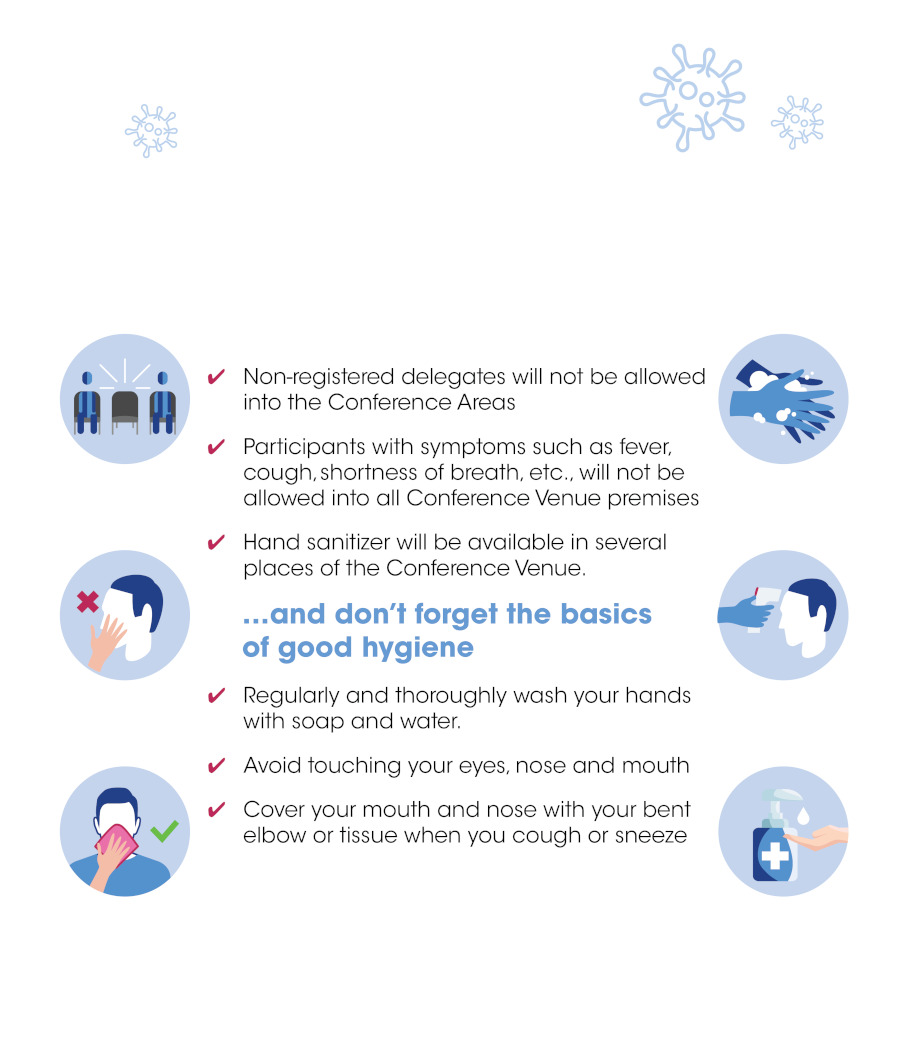
Participation in Conference is not subject to any restrictions, due to COVID-19, and access of attendees and other participants is free to conference venue area. Nevertheless, they are requested to take into account recommendations listed in this section to ensure the health and safety of all people involved in the Conference.
In particular:
Travel Regulations
For regular updates on regulations concerning traveling to Greece, please visit the following websites:
Scientific / professional and other Congresses can be held with physical presence and optionally in hybrid way and specifically:
In the event that, for epidemiological reasons, the State imposes a ban on Congress with physical presence, the Congress is not postponed/canceled, but is carried out as virtual in its entirety.
The Organizers can choose to organize a virtual Congress from the beginning, online in its entirety, with no physical presence.
Congress with only physical presence is not allowed, without simultaneous live streaming.
Physical presence is allowed only during Panhellenic, regional, and local Congress. International Congresses are allowed with physical presence of foreign delegates in accordance with international travel instructions.
In the case of physical preference of attendees, persons should have one of the following:
A certificate for having been fully vaccinated against COVID-19
A certificate of having recovered from COVID-19
Non-vaccinated attendees will not be allowed to attend physically.
A Coordinator shall be set inside the Congress venue, to handle situations of possible COVID-19 cases.
A specially designed, well-ventilated space is to be created near the entrance of the Congress Center, as an isolated area for suspicious cases, which will be supplied with protective equipment and supplies such as masks, paper tissues, garbage can with foot pedal, washbasin with liquid soap. The door of this area must be kept permanently closed and the entrance must be limited to staff trained to deal with possible cases of coronavirus.
The Organizers shall keep a list with contact details of all registered participants in order for it to be used for contact tracking in case of a positive coronavirus case.
The Organizers, in conjunction with health professionals, are responsible for carrying out rapid tests to everyone in the venue (attendees, Organization personnel, sanitation personnel, exhibitor personnel, etc.) upon the Opening of the Congress. Also, carrying out self-tests is recommended after the third day of the Congress.
The number of attendees allowed with physical presence is limited by the capacity of the Congress halls, up to a hundred percent occupancy rate
Wearing of face masks are following the general rules of safety is highly recommended for all present at the Venue (staff, technicians, security), for attendees and faculty. In each case, Congress will comply with all the sanitary measures, as provided, concerning both speakers, attendees and all other involved in the event. An integrated cleaning system and disinfection of the facilities and technological equipment will ensure the safety of all participants.
Attendees who wish to attend the Congress physically must be able to register online for an available seat in the Congress Hall, in the Session they wish to attend. Registrations for physical presence are limited by the capacity of Congress halls, the availability of diagnostic tests, and by the distance between seated attendees. Attendees who have not registered are not allowed entry, unless vacancies are available. Only the speakers, chairpersons, registered attendees, and Congress staff shall be present in the Congress Hall.Communication between participants and the Congress Secretariat/Organizers shall take place via telephone or online for any issue that may arise, in order to limit speaker/attendee movement to meet the Organizers/Secretariat, including financial issues, parking validation, etc.
Registration, supply of Congress badges, scientific programs, certificates, and other material shall take place online (via email, SMS, social networking).
The venue shall be closed off and completely controlled during the entirety of the Congress setup and dismantling, and access shall be given only to certified persons that shall carry the relevant credentials (badge).
All staff shall need to wear their badges as to be fully visible during all stages of preparation, as well as during the Congress. Frequent checks (via badge scanning) shall be carried out, in order to make sure that entry to the Venue is limited to allowed persons.
Badges for associates and technical/construction personnel shall be given to the same upon their arrival to the Venue, and only since they have sent the Organizers all necessary information within relevant deadlines.
The Security company and the person responsible for the Venue will carry out checks during the entirety of the Congress, in order to ensure the application and adherence of all health and safety protocols, and social distancing.
Wearing of face masks and adherence to health protocols is highly recommended for all personnel
Registration, supply of entry badge, scientific program and handing out certificates shall take place online (via email, SMS, social networking).
The Congress secretariat, located in a prominent and comfortable space, will have a plexiglass barrier in front to avoid droplet transfer.
Congress secretariat staff are highly recommended to wear a mask
Antiseptic gel/fluid will exist in front of each person of the secretariat staff, for any of the participants who wish to use it.
The number of attendees allowed with physical presence is limited by the capacity of the Congress halls, up to a hundred percent occupancy rate.
Attendees’ entrance to Congress halls is monitored by electronic scanning of their Congress badge. Only chairs/speakers of the meeting, authorized attendees and the technical staff are allowed to be present in the hall.
Entry is not allowed to anyone who is not registered participant or Congress personnel.
There shall be a staff member inside the hall who shall monitor adherence to safety protocols by all present in the hall, including catering/hospitality/audiovisual staff, as well as the capacity limitation measures and available seating, to avoid overcrowding.
Room staff will distribute the microphone during duration of Q&A, and will clean the microphone after each question.
Separate meeting spaces are created for B2B meetings, if necessary, where social distancing rules are followed and all necessary precautionary measures are taken (e.g., use of a mask), to avoid overcrowding in the stands.
Eating and receiving food is not prohibited in the halls.
Wearing of face masks is highly recommended for all present in the hall (staff, technicians, security, attendees, faculty).
It is encouraged to send speeches to the secretariat electronically.
The secretariat of the preview desk has a plexiglass barrier on the front to avoid droplet transfer.
The staff of the preview desks are highly recommended to wear a mask and have antiseptics.
In front of each person of the secretariat staff, there will be antiseptic liquid for any of the delegates who wish to use it.
At the chairpersons’ panel, chairs are placed at a sufficient distance between them, and there are antibacterial gels for all moderators/chairpersons. Personal bottles of water will exist on the chairpersons’ panel, and will be changed upon chairpersons’ changing.
Congress room staff or the catering service are responsible for changing water and utensils.
Desktop table microphones are cleaned by audiovisual company staff supporting the Congress, after each session. The same goes for any lapel/cordless microphones that are used.
On the podium, microphones and controls, used for speaker presentations are cleaned after the end of each presentation by the audiovisual company, which supports the Congress on the basis of the security/protection procedures that govern them. Bottled water that will be on the podium shall change along with the change of Speaker.
Wearing of face masks is mandatory for all present at the Venue (staff, technicians, security), for attendees and faculty. Otherwise, speakers can refrain from wearing a mask during their speeches, as long as there are Plexiglass dividers present, which are cleaned and disinfected thoroughly between the speakers.
Room staff will distribute the microphone during duration of Q&A, and will clean the microphone after each question.
This same procedure is to be observed in all the parallel rooms of the Congress.
Commercial stands are allowed, providing there are no seating spaces, are manned by one (1) person, and do not have any printed or other tangible material for distribution to attendees.
Showing of commercial material via video to attendees is recommended.
The width of aisles between stands should be increased by twenty percent (20%) in relation to the width of previous years.
Within stands, the same social distancing measures and seating arrangements are applicable as in retail services and dining.
Participation of attendees, suppliers and staff shall be personal. For their entrance to the venue, their name shall need to be written explicitly on their name badge, to be worn in a visible place in the exhibition halls.
Wearing of face masks is highly recommended for exhibitors and exhibition staff inside the exhibition halls.
Light buffet/coffee breaks are allowed during breaks, that must follow the mode of operation of outdoor canteens and the principles of the respective protocol of operation of dining, according to the relevant JMC 4, as it applies each time.
In any case, it is preferable to serve meals packaged in individual packages.
The consumption of food is done by observing social distancing measures.
It is forbidden to eat in the Congress room.
During the registration process as well as during the participation of the participants, people with symptoms of a disease of the respiratory system (fever, cough, shortness of breath, etc.). should be explicitly prohibited.
The use of a mask is highly recommended for all those present at the venue throughout the preparation and operation of the Congress.
In visible places inside and outside the Congress Center, hand antiseptic is placed in pumps, which are regularly checked for refills.
Posters with instructions on:
The above-mentioned instructions can also be provided through electronic signage within the venue as well as through announcements from loudspeakers.
If the Congress has an international participation, announcements should also be provided in English.
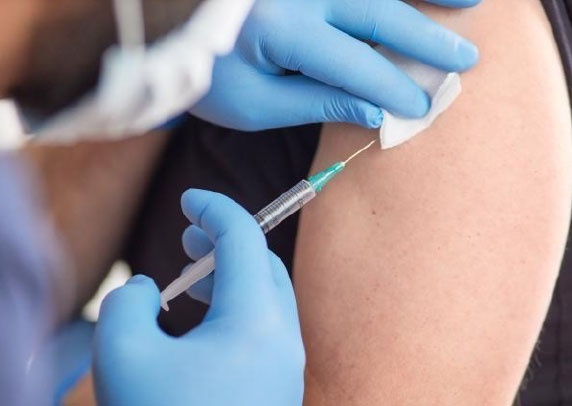


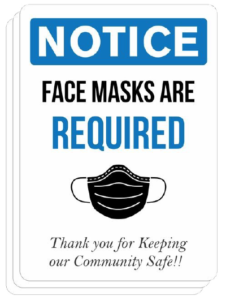
It is clarified that:
Cleansing is the mechanical removal of organic and inorganic contaminants (e.g., dust) from a surface or tool to reduce the microbial load. Also, cleansing can be applied to human limbs (e.g., hands, face, head, etc.).
Disinfection is the process by which inactivation or destruction of pathogen microorganisms is achieved but not of their resistant forms (e.g., seeds) with chemicals (e.g., alcohol) or natural methods (e.g., temperature) on objects, tools and surfaces.
Common areas are regularly cleaned and disinfected during preparation and operation of the Congress. In general, for daily surface disinfection procedures one minute (1 ‘) contact is required, with antimicrobial agents such as: sodium hypochlorite solution at a concentration of 0.1%, ethanol 70% and hydrogen peroxide 0.5%. The disinfectant must be spread on all surfaces and remain wet for the required contact time. The solution of sodium hypochlorite should be prepared (addition of bleach products to water) shortly before application. They must be applied properly during cleaning and disinfection, and at the end of cleaning or disinfection hands should be washed thoroughly with soap and water.
Cleaning work must be performed by the cleaning staff using masks, gloves, and work uniforms.
For the cleaning and disinfection process, the provisions of the relevant circular apply.
Every day after the closing of the Congress, cleaning and disinfection of the premises is recommended, which shall remain closed until the next use.
Congress rooms are constantly ventilated, keeping all doors wide open as long as the preparation of the Congress lasts.
Bins for consumables, such as plastics and disposable cups, are placed inside and outside the Congress room. This waste is collected at regular intervals by cleaning staff, who strictly adhere to all conditions of hygiene and safety, such as wearing a mask and gloves.
WC common areas are regularly disinfected, with a special emphasis on sinks, knobs, and surfaces that are frequently touched.
Ensuring that sinks in the toilets always have a bottle of liquid soap and disposable paper towels, which should be discarded in bins next to the sinks, as well as alcoholic antiseptic with pumps.
Ensuring all waste bins open by foot pedal and contain plastic disposable bags.
Ensuring that physical distance measures are observed while waiting at the entrance to the toilet.
The use of an automatic chlorine release system is recommended, while toilets should be flushed with the toilet lid closed.
The doors of the halls in operation but also the external doors remain open, so that the spaces are naturally ventilated.
The operation of the air conditioning of the premises is based on the relevant circulars.
Taking appropriate measures for the proper operation of plumbing and air conditioning installations of the premises in order to protect against the Legionella bacterium is based on what is mentioned in the relevant circular.
Their use is allowed only for the disabled and for the transport of cargo, observing all hygiene and security measures.
If a person develops symptoms comparable with COVID-19 coronavirus, they should be led to the specially designed isolation area of possible cases, which will be equipped with sanitary ware such as masks, tissues / handkerchiefs, garbage bin with foot pedal, sink with liquid soap. The door must be kept closed at all times and entry must be restricted to only the minimum necessary personnel trained to deal with possible incidents of coronavirus COVID-19. It is recommended to perform a self-test, which should be available on site. If the result is negative, it is recommended that the person return to his home/accommodation with a recommendation for monitoring symptoms. If the result is positive, RT-PCR test should be done. If this test is also positive, the person must inform the COVID-19 Coronavirus Case Management Coordinator in order to facilitate the process of tracking contacts. Specifically, the coordinator informs EODY and the GSCP for epidemiological investigation and tracing of all possible contacts of the case.
*Please note that the above protocols may change from day to day, we will be updating them frequently.
Travel Regulations
For regular updates, please visit the following websites:
• Official Government announcements on travel protocols implemented for Greece: https://travel.gov.gr/#/protocol_air
• IATA Travel Centre: https://www.iatatravelcentre.com/world.php
The Congress Organizer’s Office should be located inside the Congress Center, to serve the speakers and to serve the administrative needs of the event. In addition, within the Congress Center, should also be located the Office of the Head of the Congress Center for service of technical and emergency needs. Digital media communication and compliance is recommended with all measures of social distancing.
It is clarified that in the medical Congress under the auspices of the Panhellenic Medical Association certifications of attendance and the award of continuing medical education credits are in full effect.
The Security company, in compliance with all the rules defined by hygiene and safety and measures of social distancing, controls application and adherence to all relevant rules by the participants in the Congress, but also by the organizers themselves, while performing ad hoc checks on the badges of people inside the Congress Center, in order to ensure entrance and staying in the Congress, only to those who actually have the relevant permission. The technical staff shall comply with all necessary measures and rules laid by the Authorities in order to serve the needs of the Congress during its operation.
T (+30) 210 6833600
E info@wtc2023.gr
W www.convin.gr
Copyright 2024 GTS | Hybrid Congress Policy | Privacy Policy | Cookie Settings
Developed by LogicOne
Tarcisio Celestino was previously ITA President (2016-19) and President of the Brazilian Tunnelling Committee. He was the Animateur of the ITA Working Group 12 on Sprayed Concrete Use (2005-10). He earned his doctorate degree in Civil Engineering (Rock Mechanics) from the University of California, Berkeley (1981).
He is currently Professor at the University of Sao Paulo and employed by Themag Engenharia Ltda., Sao Paulo (Brazil), where he leads the Geotechnical Engineering, Engineering Geology &Transportation Engineering Design Groups. He is also responsible for the geotechnical designs of several hydroelectric power plants, subways, highways etc., including major underground works (since 1990). He has also acted as consultant.
Professor Celestino continues to contribute his knowledge for the graduate courses & research areas on Rock Mechanics & Underground Works, at the São Carlos Engineering School, University of São Paulo and for the ITACET Foundation.
Our destination is the exploitation galleys of one of the largest underground mines of Attica. The chambers of metal extraction, rich in recognisable minerals, combine the mystery of ancient drifts with the beauty of caves. We will wander underground for up to 3 hours and explore the maize of drifts, the chambers supported by natural as well as carved-out pillars and the stalactites decoration reminiscent of natural caves. Each of the routes we follow hides surprises waiting to be discovered!
After we will visit the great “Chaos” sinkhole, a heart-shaped sinkhole formation 150m in diameter and 55m deep. This chiasm may have been formed by the collapse of a cave roof as many of the area’s mining tunnels end there.
Scientific theme: Underground mining activity in Lavrio
Duration: 6 hours inclusive
Detailed program
9.30-10.30 Athens-Lavrio
10.30-13.30 Underground mines
14.00-14.30 Stop at dolin “Chaos” and return to Athens
14.30 – 15.30 Lavrio-Athens
Cost per person: 40,00 €
*limited participation on a first come first served basis. In case participants are less than 20, the respective event will be cancelled and a refund wil be given.
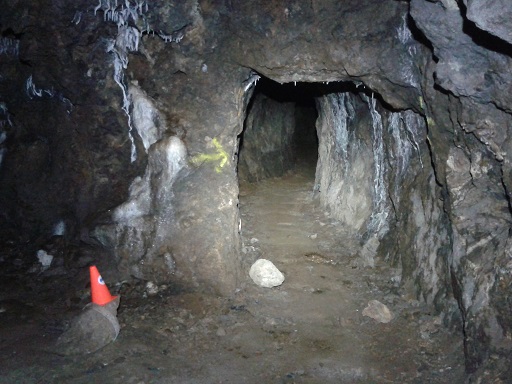
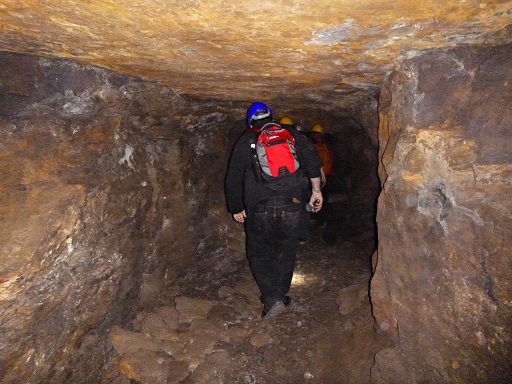
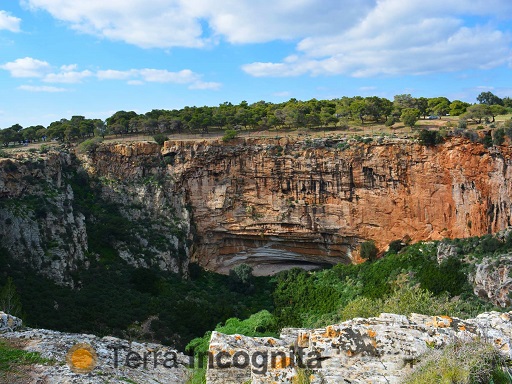
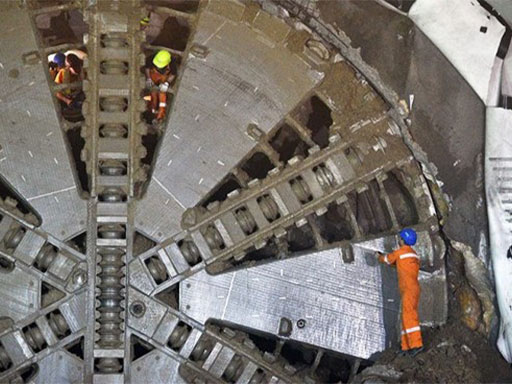
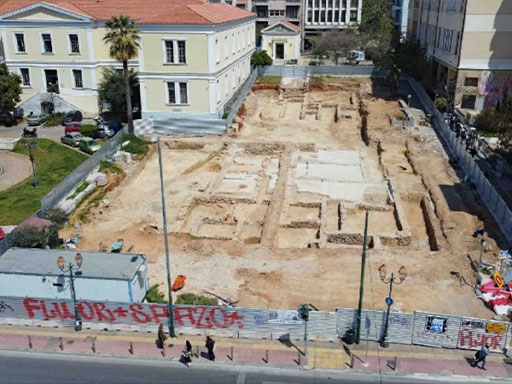
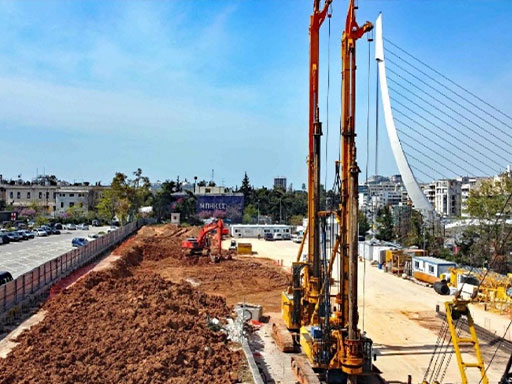
How many surprises can the Athens underground have in store for its visitors? The stroll will start from underground shelters and detention areas of the German Kommandatur, remnants of the 2nd World War in Athens. Then, we will take the steps that start off under a timeworn trap door on the side of a road or hidden away in a sidewalk flower–bed, that will lead us in a different, forgotten underground area of the city! For hundreds of years, underground pathways have been used for various and mysterious purposes. Some say that all underground pathways are interconnected although there is no proof of this. Nevertheless, the allure of an unknown world is always there, beneath the ground we walk on. We lift up the antiquated hatch and descend the stone steps. In the catacomb, we come across tunnels of ancient aqueducts, roman baths and byzantine crypts. The Athens river is also found hidden below the ground, running in old galleys under the most central streets of Athens – we can hear the cars passing over our heads!
We invite you to discover together the hidden secrets of our city!
Scientific theme: underground constructions of the 19th and 20th century.
Duration: Maximum of 4 hours.
Detailed program:
11.00 Meeting outside Metro Station Panepistimio
11.30 Memorial Site (Korai Street). Two-level underground shelter below the Mansion of Ethniki Insurance Company.
13.00 Catacombs of the Russian Church (Filellinon Street). Inside the catacombs a tunnel and a shaft from ancient Peisistratus aqueduct, ruins from roman baths and crypts of the Byzantine order of Likodimos -11th century.
14.00 Ilissos River (area of Panathenaic Stadium). The buried riverbed of Athens river Ilissos.
Cost per person : 35,00 €
*limited participation on a first come first served basis. In case participants are less than 20, the respective event will be cancelled and a refund wil be given.
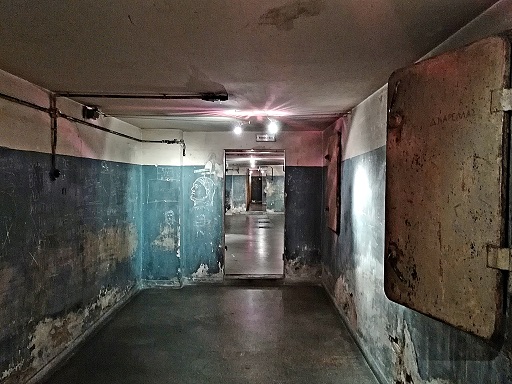
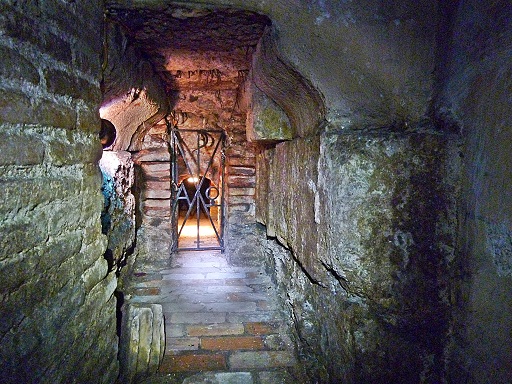
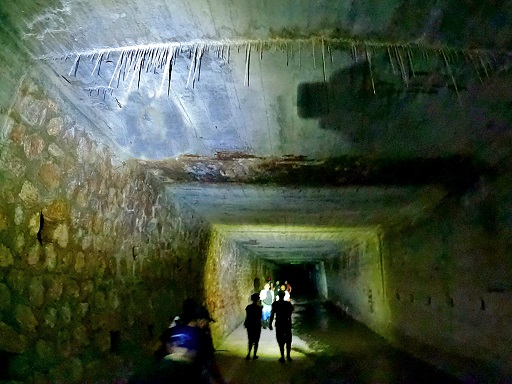



Professor Kyriazis Pitilakis has more than forty years of intensive academic, research and professional experience in civil, earthquake and geotechnical engineering. Vice-President of the European Association of Earthquake Engineering (EAEE), ex- Chairman of the Technical Committee “Geotechnical Earthquake Engineering andAssociated Problems” (TC203) of the International Society of Soil Mechanics and Geotechnical Engineering (ISSMGE), and past President of the Greek Society of Earthquake Engineering. He is presently Professor Emeritus in Aristotle University, Thessaloniki, Greece and since 2019 visiting Professor in Tongji University, International Laboratory of earthquake Engineering (ILEE), Shanghai, China.
Coordinator and scientific responsible of numerous European research projects, namely EUROSEISTEST and SYNER-G, he has a long experience in European research activities in earthquake engineering, geotechnical engineering, vulnerability and risk assessment of civil engineering structures, infrastructures and lifelines. According to the recent Stanford classification he is among the top 10 leading researchers in Civil Engineering in Greece, and among the top 10 leading international researchers in specific topics like Soil Dynamics, Engineering Seismology and Geotechnical Earthquake Engineering.
Chairman of several international conferences including the 16th European Conference of Earthquake Engineering, Thessaloniki 2018 and invited keynote lecturer in many International Conferences. Author of more than 650 scientific papers (h-factor 57) published in peer review scientific journals, and conference proceedings, author and co-author in several books, editor of four books published in Springer Editions, all in relevant subjects of earthquake engineering, seismic risk and geotechnical earthquake engineering. Professor Kyriazis Pitilakis is founder and coordinator of EUROSEISTEST, a large scale experimental facility in earthquake engineering, soil dynamics and engineering seismology that is unique in Europe and worldwide. He supervised more that 30 PhD thesis and numerous of his students hold academic positions in Greece and worldwide.
Professor Kyriazis Pitilakis is strongly involved in the ongoing revision of EC8 (Part 1-Seismic Actions and Part 5-Seismic design of foundations, retaining structures, soilstructure interaction, liquefaction, slope stability and underground structures), while he has been international expert for the revision of other seismic codes worldwide.
He is member of the editorial advisory board in Springer editions (Geotechnical, Geological and Earthquake Engineering), member of the editorial board and reviewer of numerous scientific journals and member of many international societies in earthquake and geotechnical engineering.
Honors: Chevalier dans l’Ordre des Palmes Academiques, French Republic.
Thessaloniki 06.06.2022
The 12th Muir Wood lecture will be delivered by Professor Marc Panet during the WTC2023 in Athens. His nomination being a Muir Wood lecturer was proposed by the French Tunnelling & Underground Space Association (AFTES) as per ITA’s Statues and By-laws.
Marc Panet graduated in Civil Engineering at the École des Mines de Paris and obtained a Master degree at the University of California at Berkeley. He started his career in 1965 at the Laboratoire Central des Ponts et Chaussées, in Paris, where he was a Research Engineer, Head of the Geotechnical Department and Technical Director. In 1982 he joined the SHP Group, in Paris, as Scientific Director. From 1984 to 1996 he was the President and CEO of SIMECSOL; and from 1996 to 2000 President and CEO of FC International SA. Since then he has been working as a consultant. He taught at the École Nationale des Ponts et Chaussées, at the École des Mines and at the École Centrale des Arts et Manufactures, in Paris.
Marc has been in charge of numerous studies in geotechnical engineering for underground works, highways, bridges, and natural hazards. Among the main projects are: the Mont Blanc Tunnel (11.6km), the Frejus Road Tunnel (12.9 km), the Large Electron–Positron Collider (CERN in Geneva), the Channel Tunnel (from 1967 to the end of the construction), the Millau Bridge, the Loetschberg Base Tunnel (43 km), subways in Paris, Rennes, Caracas, Athens and Algiers, the slides of the city of Constantine (Algeria), the project of the suspended bridge on the Straits of Messina (Italy) and the project of the cable-stayed bridge on the Golden Horn (Turkey). He is presently involved in a large number of geotechnical projects.
He is the author of a large number of publications in professional journals and international conferences and of the well-known book “Calculation of tunnels using the convergence-confinement method”.
Marc Panet is a Honorary Member of the French Academy of Technology, Knight of the National Order of Merit and Knight of the Order of Academic Palms.